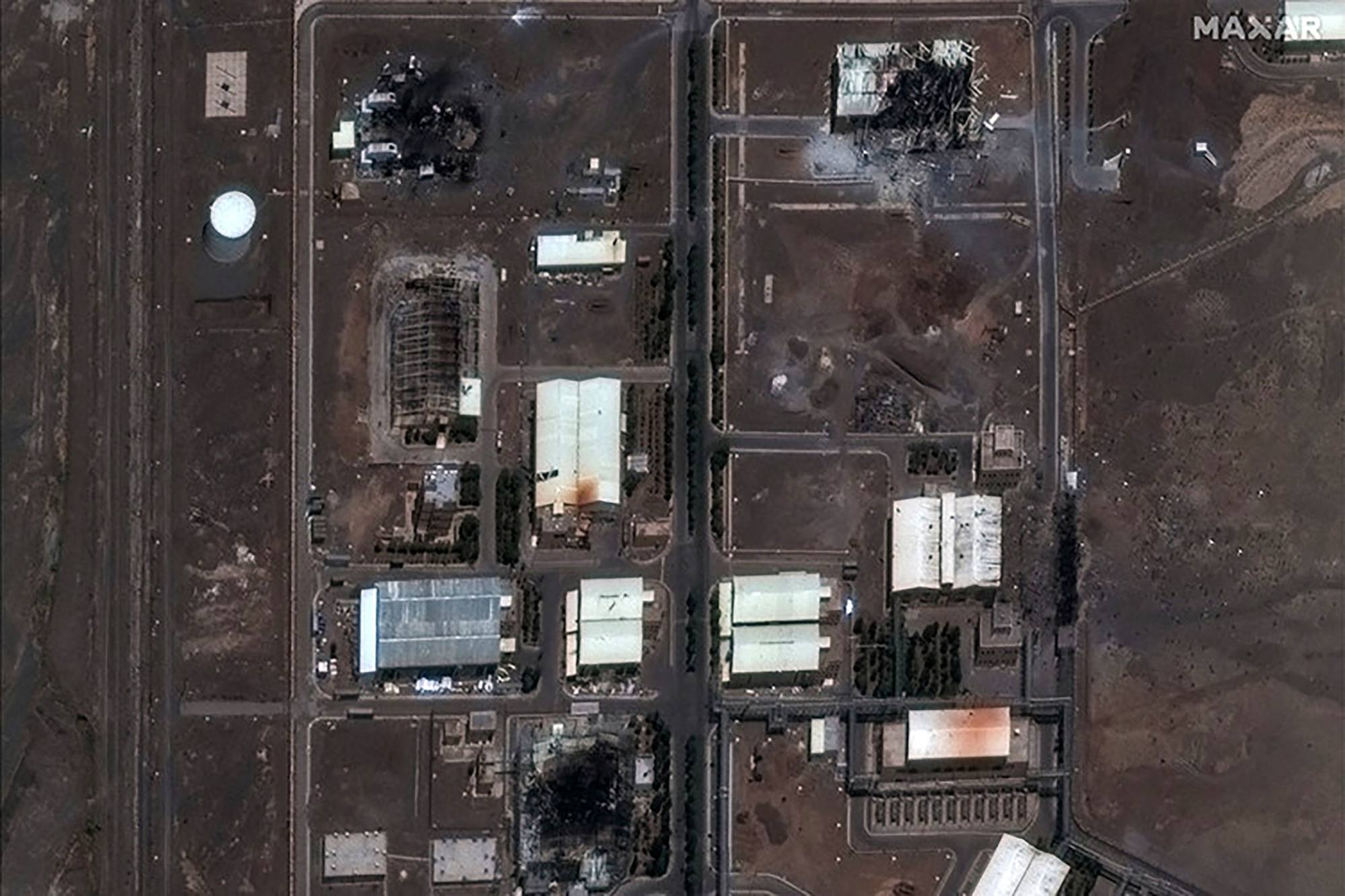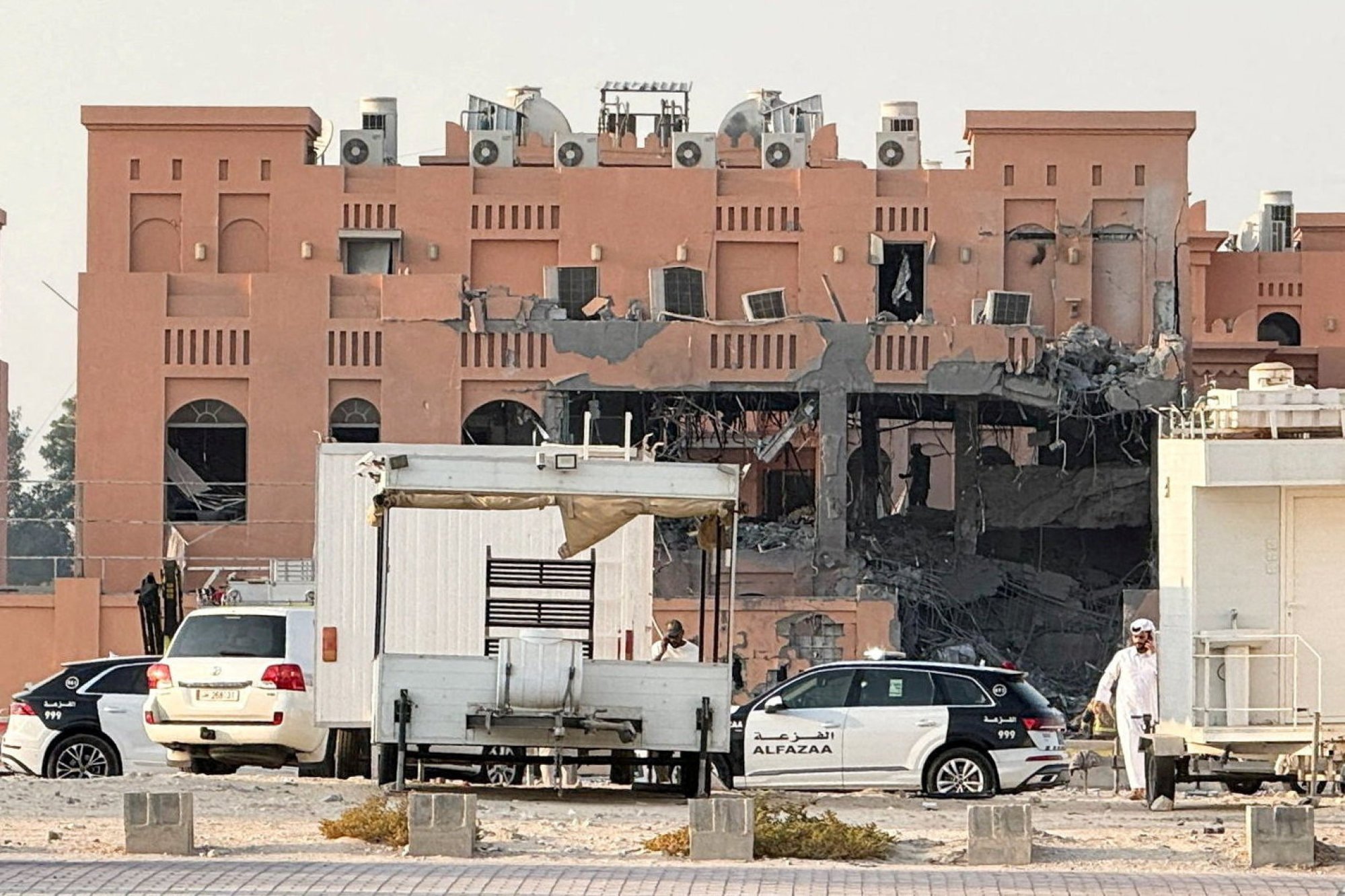Any reactivation of UN sanctions could prompt Iran to scrap inspections of its nuclear facilities and monitoring of its uranium stockpile Wi...
With UN sanctions set to be reactivated against Iran on Sunday, Tehran finds itself facing a tough choice between capitulation to US President Donald Trump's demands for "unconditional surrender" over its nuclear programme and further Israeli attacks.
With an equally unpalatable option of mediation by distrustful Gulf Arab neighbours that it has intimidated for decades, Tehran is playing for time in the hope that Washington can be persuaded to resume bilateral negotiations that were scuttled by US and Israeli air strikes against Iranian facilities in June, according to analysts.
"Iran really has nowhere else to turn," said Barbara Slavin, distinguished Middle East fellow of the Stimson Centre, a Washington think tank.
Do you have questions about the biggest topics and trends from around the world? Get the answers with SCMP Knowledge, our new platform of curated content with explainers, FAQs, analyses and infographics brought to you by our award-winning team.
Member states of the Saudi Arabia-led Gulf Cooperation Council (GCC) "don't trust Tehran, but they fear Israel more and are thoroughly disgusted with the US failure to rein in the Israelis and end the Gaza war", she added. The GCC also includes the United Arab Emirates, Qatar, Kuwait, Oman and Bahrain.
Iran has warned that the UN Security Council's sanctions snapback - initiated last Friday by Britain, France and Germany - would prompt it to scrap inspections of its nuclear facilities and monitoring of its uranium stockpile by the International Atomic Energy Agency (IAEA) under the terms of the 2015 Joint Comprehensive Plan of Action.
But Tehran has also suggested it would seek an alternative agreement for cooperation with the UN atomic agency, signalling its intent to remain compliant with the Nuclear Non-Proliferation Treaty and refrain from any attempt to manufacture nuclear warheads.
The 2015 nuclear deal saw Iran cease uranium enrichment activity except for low-grade material used in nuclear power plants, in return for relief from UN sanctions.
After Trump pulled the US out of the deal in 2018, Iran reduced its compliance as it built more uranium enrichment facilities and expanded its stockpile of near-weapons-grade material. These activities were thwarted by the US bombing of three Iranian nuclear facilities on June 22.
"The Islamic Republic is in a no-win situation despite retaining some cards to play," said Farzan Sabet, a managing researcher at the Geneva Graduate Institute.
Tehran could "parlay its remaining nuclear capabilities into ambiguity about the state of its programme and weaponisation intentions", Sabet said.
According to a recent IAEA report, Iran possessed enough highly enriched uranium of near-weapons grade to build 10 nuclear warheads.
The remaining assets that Iran had - its ballistic missiles and badly battered "axis of resistance" partners such as the Lebanese Hezbollah - "appear insufficient to coerce or deter its adversaries into backing down, or to leverage them to negotiate a settlement", Sabet said.
Slavin said Iran would likely have to "capitulate" on its uranium enrichment programme due to its limited options.
The UN General Assembly meeting this week is the last opportunity for Iran to reach out to the Trump administration for a deal, according to Slavin.
Iranian media have reported that "some political moderates" are advising President Masoud Pezeshkian to seek a meeting with Trump in New York and that there are "new Iranian nuclear offers".

However, last-minute talks on Tuesday between Iranian Foreign Minister Abbas Araghchi and his counterparts from Britain, France and Germany did not produce a compromise.
Trump also reiterated his position on Iran's nuclear programme at the UN summit, saying "the world's No 1 sponsor of terror cannot be allowed to possess the most powerful weapon".
By bombing three Iranian nuclear facilities "obliterating everything ... we did something that for 22 years people wanted to do", he said.
A few hours later, Iran's Supreme leader Ayatollah Ali Khamenei said negotiating with the US "under the current circumstances ... does not serve our national interests, offers us no benefits, and will not ward off any harm".
But he emphasised Iran's commitment to not weaponise its enriched uranium stemming from his 2003 edict banning Tehran from acquiring weapons of mass destruction.
Analysts said such diplomatic ambiguity was typical of Iran.
But sooner or later, Iran would have to choose between giving up on uranium enrichment and undertaking the risky move of weaponising its highly enriched uranium buried under the rubble of its three damaged nuclear facilities, they said.
One "middle route" that Iran could take was negotiations coupled with limited strikes on regional energy infrastructure to compel other countries to pressure Israel not to violate the ceasefire that ended their 12-day war in June, said Ali Alfoneh, a senior resident scholar of the Washington-based Arab Gulf States Institute.
But Iran is unlikely to antagonise the GCC, with which it has stepped up diplomatic cooperation since the outbreak of the Israel-Gaza war in 2023, according to other analysts.
Araghchi and Supreme National Security Council Secretary Ali Larijani met Saudi Crown Prince Mohammed bin Salman last week ahead of Riyadh's signing of a mutual security pact with nuclear-armed Pakistan.
Tehran has refrained from criticising the pact even though it was crafted with Iran and Israel - after the latter bombed Doha on September 9 - in mind, analysts say.
The growing detente between Saudi Arabia and Iran, following their resumption of diplomatic ties mediated by China in 2023, was spurred by the lack of a US military response to an Iranian ballistic missile and drone attack in 2019 that knocked out half the kingdom's oil processing capacity for a month.
The failure of the US to also react to a similar attack on the UAE by Iran's Houthi allies in 2020 has undermined the GCC's trust in Washington as its security guarantor, according to analysts.
Slavin commented that the Israeli strike against Hamas representatives in Doha served as yet another "wake-up call" for the Gulf Cooperation Council (GCC), leading Saudi Arabia to reveal plans for a Nato-esque agreement with Pakistan, with the potential for additional nations to participate.

"This represents a significant setback for American standing and, at the very least, a symbolic rejection of the US-dominated security framework that has been in place in the area for many years," she stated.
Sabet mentioned that Iran's leaders had expressed a desire to bolster their struggling economy by strengthening trade ties with the Gulf Cooperation Council.
He expressed hope that they could further utilize connections in the Persian Gulf to ease strain with the US and depend on certain entities to serve as intermediaries with the Trump administration.
Nevertheless, the GCC recognized the ineffectiveness of simply appeasing Tehran after Iran's missile attack in June on Qatar's Al Udeid airbase, which serves as the US military's Central Command headquarters. The attack was a response to the American bombing of Iranian nuclear sites.
Experts suggested that Iran was genuinely at risk of additional airstrikes from Israel.
Alfoneh stated that Israel would "seize any plausible pretext to breach the ceasefire" with Iran, furthering its established objectives of encouraging internal unrest and altering the government in Tehran.
He further stated that this action would reinforce the stance of Iranian officials who supported strategies such as attacking energy facilities in the region and developing nuclear weapons.
More Articles from SCMP
China has voiced disapproval of Japan's plans to develop laser weaponry, arguing that they pose a risk to stability in the region.
More than 32,000 individuals are set to gain from a basketball development initiative backed by the Hong Kong Jockey Club.
The impact equation: choosing generative AI applications that are significant.
According to a former navy commander, Pakistan is showing interest in laser weaponry from China.
This piece was initially published by the South China Morning Post (www.scmp.com), a prominent news source covering China and the Asian continent.
© 2025 South China Morning Post Publishers Ltd. All rights protected.




COMMENTS